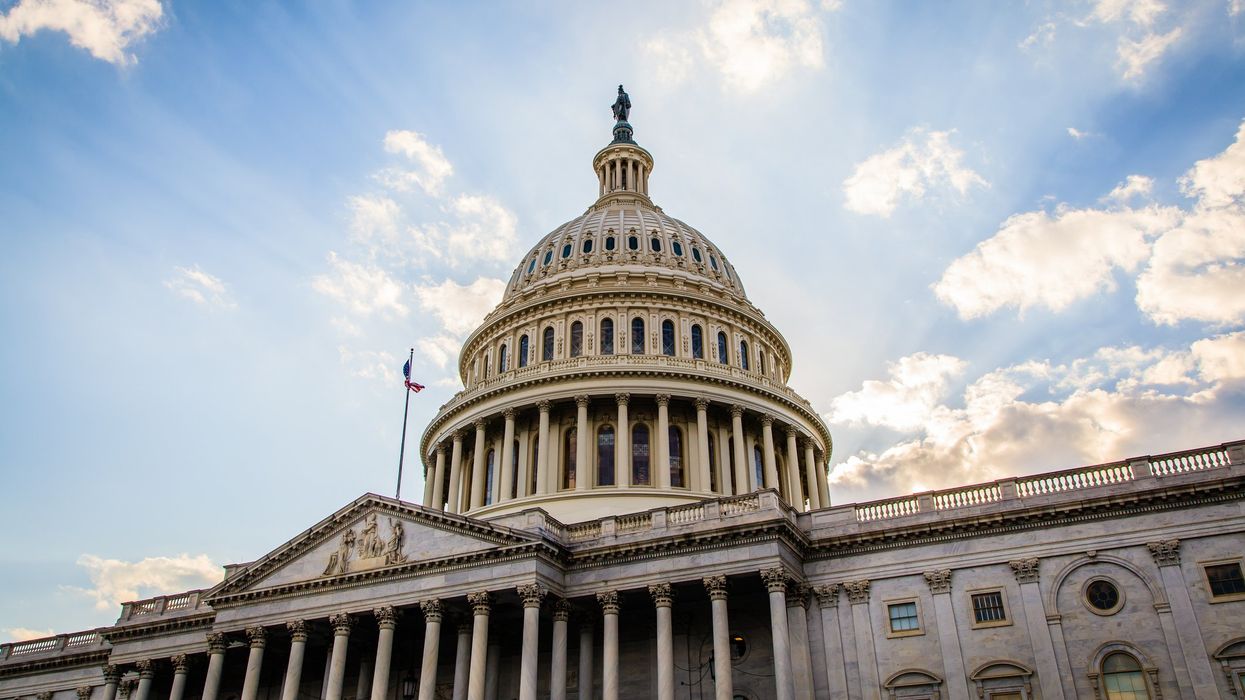Background: What are Congressional Term Limits?
While members of the U.S. House of Representatives serve two-year terms and U.S. Senators serve six-year terms, all Congresspeople are eligible for re-election indefinitely. As of 2023, U.S. Representatives served an average term of 8.5 years, while U.S. Senators served an average term of 11.2 years.
Congressional term limits are a proposed constitutional amendment that would limit the number of terms a member of Congress can legally serve. Under Article V, the Constitution can be amended by either (1) a two-thirds vote of support in both chambers of Congress, or (2) a constitutional convention called by two-thirds of all states and ratified by three-fourths of all states. Term limits reached their highest level of political salience in the 1990s. In 1992, Arkansas voters attempted to impose term limits on their state’s federal congresspeople via an amendment to their state constitution. In U.S. Term Limits, Inc. v. Thornton, the Supreme Court decided that this amendment was unconstitutional and that states cannot impose term limits on their own federal delegation; the only way to impose congressional term limits is to amend the U.S. Constitution.
Current Attempts to Impose Congressional Term Limits
In 2024, Representative Ralph Norman (R-SC) introduced a joint resolution to amend the Constitution and enact a three-term limit for Representatives and a two-term limit for Senators. The resolution died in committee. In January 2025, Senators Ted Cruz (R-TX) and Katie Britt (R-AL) introduced a resolutionwith the same provisions. Their proposed amendment was co-sponsored by 17 senators, all of whom are Republicans.
While the constitution has never been amended through a constitutional convention, some states are also taking that approach to impose congressional term limits due to limited success of prior joint resolutions in Congress. Indiana’s State Senate recently voted to approve a resolution calling for a convention to consider term limits. If the Indiana House passes the resolution, Indiana will become the tenth state to call for a constitutional convention, joining Alabama, Florida, Louisiana, Missouri, North Carolina, Oklahoma, Tennessee, West Virginia, and Wisconsin.
Arguments In Favor of Congressional Term Limits
The case for congressional term limits centers on the following arguments: (1) Term limits motivate politicians to get more done while in office, (2) Congressional turnover eliminates the incumbent funding advantage, (3) Term limits reduce careerism in politics, and (4) Congressional term limits have widespread support.
One common argument in favor of congressional term limits is that the policy will incentivize politicians to act more efficiently and effectively during their term given the knowledge that they cannot serve indefinitely. Some argue that today, legislators avoid taking immediate action on hot-button issues like immigration and healthcare because they know those issues drive voters to the polls. These proponents argue that congressional term limits would help shift lawmakers’ core objective from winning re-election to creating effective, long-term policy solutions.
Advocates for congressional term limits also express concern that members of Congress are unrepresentative of their constituents, especially in terms of economic status. They highlight that funding has become a barrier to becoming an elected official and that incumbency is often linked with disproportionately high campaign funds, making it difficult for newcomer candidates to win against an incumbent. Proponents of term limits say the policy would reduce this incumbent advantage, leveling the funding playing field every two or three terms so that candidates have more of an equal financial footing heading into their race. Supporters also suggest that term limits could indirectly decrease the role of corporate funders in politics by deterring companies from making major investments in lawmakers who will only hold power for a short period.
Other proponents of congressional term limits argue that the policy would limit careerism in Congress by making room for people with more real-world expertise to service. They highlight that the average duration of time served in Congress has been steadily increasing from 8.9 years to 11 years, arguing this demonstrates that congressional office is viewed as a career plan instead of a post of service. In the absence of indefinite congressional roles, proponents argue, everyday Americans with more recent connections to the job market would have more opportunities than career politicians who are “insulated from the communities they represent.”
Finally, proponents of congressional term limits highlight that the majority of Americans support the policy. A 2023 Pew Research Center study found that 87% of respondents favored limiting the number of terms one person can serve in congress. A different 2023 study from the Maryland School of Public Policy found support for congressional term limits transcended political party, with 86% of Republicans, 80% of Democrats, and 84% of Independents in favor of the policy.
Arguments Against Congressional Term Limits
The arguments against congressional term limits are primarily built around the three subarguments: (1) Term limits fail to address political corruption, (2) Term limits ignore the value of the incumbency and institutional knowledge, and (3) Frequent congressional turnover shifts power away from the legislative branch.
Some opponents argue that congressional term limits fail to curtail political corruption, and may even worsen the problem. They hold that imposing term limits will cause lawmakers to work more closely with lobbyists for two reasons. First, given that term limits will cause a sharp increase in the number of “freshmen” lawmakers with limited legislative experience, critics argue that more politicians will rely more closely on lobbyists and special interest groups to write or recommend laws to “fill [lawmakers’] own informational and policy gaps.” Second, critics warn that term limits will only exacerbate the “revolving door” phenomenon in which retired legislators seek to maintain political influence by securing careers as lobbyists or private sector government affairs consultants. They cite a 2023 study that found that state governments with term limits saw an increase in the frequency of political corruption events. The study observed a “penultimate effect”, where state legislators under a term limitation devoted more of their last term to securing their personal power than to passing policy. Given that the frequency of last terms will increase significantly under term limit policy, opponents worry about an accompanying increase in political corruption.
Opponents of term limits also argue that the values of political incumbency in the legislative process are taken for granted. They argue that policymaking is a specialized skill that must be developed over time, highlighting examples of how bills with loopholes and contradictions – the result of unskilled policymaking – harm the American public. They hold that incumbency’s value is its ability to maintain legislative efficiency and institutional knowledge. Given that federal policymaking is a skill that can only be learned on-the-job, critics say incumbency gives lawmakers the opportunity to become the specialized professionals their constituents deserve. They also argue that bipartisan partnerships among lawmakers take years to cultivate, and that term limits would hinder cross-party collaboration.
The third core criticism of term limits is that the policy would shift power to the executive and the private sector at the detriment of democracy. As lawmakers are denied longer tenures, opponents argue, lobbyists and staffers become the primary voice of experience in the legislature. Additionally, critics suggest that a decrease in experienced legislators with cross-aisle relationships will further hinder Congress’ ability to efficiently pass legislation, catalyzing an increase in executive orders and other executive branch actions. This will create hurdles to the traditional system of checks and balances.
Conclusion
The debate over congressional term limits is longstanding and complex. While proponents argue that the policy will increase legislative efficacy, decrease corruption, and represent the will of the people, critics worry that it could have a counteractive effect. As the debate continues, countless questions linger. How much do we value incumbency? How are money and careerism intertwined? Is the legislature representative enough? Is legislative efficiency worth risking? After all of those questions have been asked, there is only one question left: Should Americans be for or against congressional term limits?
Pros and Cons of Congressional Term Limits was originally published by The Alliance for Citizen Engagement and is republished with permission.
Thomas Mosher is a current junior at the University of Wisconsin- Eau Claire.




















